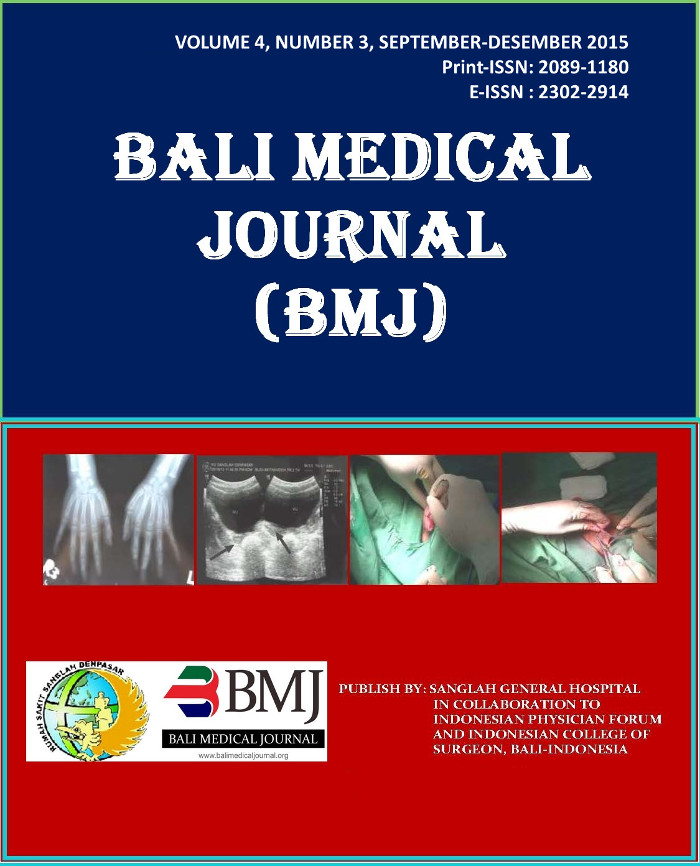High Serum Prostate Specific Antigen as A Risk Factor for Moderate-Severe Prostate Inflammation in Patient with Benign Prostatic Hyperplasia
Abstract
Background: Benign Prostatic Hyperplasia (BPH) is one of the most common degenerative disease found in men. Theories have been delivered to elucidate etiology, one of them is the theory of inflammation, and PSA is considered as one of risk factor for prostate inflammation. Undetected chronic inflammation could be a problem in BPH due to the obstructive and irritative symptoms it causes. Assessing risk factor could provide a better treatment outcome. Methods: A retrospective case control study in Sanglah Hospital, Indonesia. 70 men with BPH who underwent TURP in 2014, prostate inflammation is evaluated histologically from prostate specimens by one pathologist to avoid subjectivity. Those without inflammations and with mild inflammations are categorized as control group (n=35), and those with moderate and severe inflammations are categorized as case group (n=35). Preoperative total serum PSA retrieved from medical record Results: Median PSA is higher in case group, 2,83 compared to 14,12, with odd ratio 1,18 (p<0,001). Multivariate analysis is done for high PSA, bacteriuria, duration of urinary catheter insertion, and obesity, and still high PSA is the independent risk factor (adjusted OR=14,6 p<0,001). Conclusion: PSA is a risk factor for moderatesevere prostate inflammation in men with BPH. Bacteriuria, urinary catheter usage, and obesity did not differ significantly as risk factors for moderate-severe prostate inflammation.Downloads
Download data is not yet available.
Published
2015-12-29
How to Cite
DUARSA, Gede Wirya K.; LESMANA, Rika; MAHADEWA, Tjokorda G. B..
High Serum Prostate Specific Antigen as A Risk Factor for Moderate-Severe Prostate Inflammation in Patient with Benign Prostatic Hyperplasia.
BALI MEDICAL JOURNAL, [S.l.], v. 4, n. 3, dec. 2015.
ISSN 2302-2914.
Available at: <https://ojs.unud.ac.id/index.php/bmj/article/view/21751>. Date accessed: 21 feb. 2026.
Issue
Section
Articles
Keywords
prostatitis, prostate inflammation, high PSA


